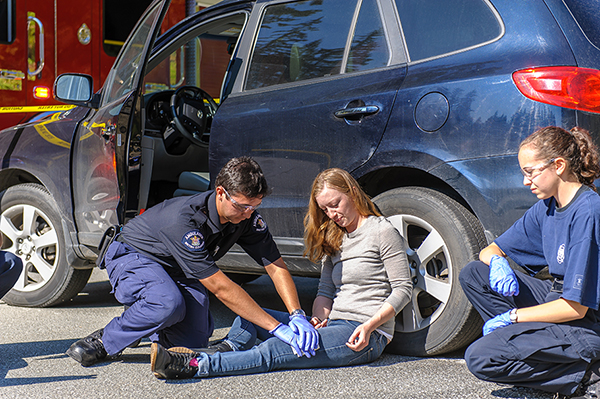
Emergency response training is an essential element of safety and security preparedness for organizations in a variety of industries. Emergency response training prepares personnel to respond to and manage emergency situations, ensuring the safety of personnel and property, and reinforcing a proactive safety culture in the workplace.
Effective healthcare emergency response training provides employees with the knowledge, skills, and training to recognize and respond to potential hazards and to effectively manage emergency situations. It also helps to instill confidence and a sense of security in the workplace, creating a safer and more secure work environment.
1. Saving Lives
It ‘s no secret that emergency response training saves lives every year. Look at first aid training as an example. These classes usually instruct individuals how to use the automated external defibrillator (AED) in the event that someone’s heart stops during a medical emergency.
Around 30,000 people experience sudden cardiac arrest each year outside of a hospital setting. Prompt use of an AED (within three to five minutes) increases the chance of survival from 50 to 75 percent. Emergency training also increases your awareness of hazards and medical issues that may lead to fatalities. By becoming more alert to potentially deadly risks, you increase your survival rate.
2. Reducing the Severity of Injuries
In any emergency situation, time is of the essence. If you don’t act quickly, a medical emergency can turn into an even more serious state. For example, a patient may have fainted but was still breathing. However, if they don’t get proper medical attention, they may stop breathing or their heart could stop beating. This is a hugely more serious problem.
However, when enrolled in an emergency response program, you’ll learn a variety of techniques for stabilizing the patient to prevent his condition from worsening. For example, you’ll learn how to use basic household items to administer first aid in the event that a first aid kit is unavailable. With this practical knowledge, you may not have been able to prevent injury altogether.
3. Building Confidence
Confidence is paramount when it comes to handling emergencies. If you are not confident in these circumstances, the outcomes can be severe. For example, if you call 911 but you are stuttering and struggling to communicate clearly with the operator, then they will not be able to send help as quickly. Similarly, if your heart is beating rapidly and your hands are trembling, the assistance will not be successful either.
By taking an emergency response training course, you’ll be able to practice emergency response skills in a safe environment. Plus, you’ll receive instruction from an instructor, which will help you in developing skills for your future attempts..
4. Enhancing Technical Knowledge
Even if you work as a registered nurse or doctor, or in emergency medical services, you’re unlikely to have better training on how to offer medical assistance or respond to medical emergencies. As an example, you may not know how to provide cardiopulmonary resuscitation (CPR) or how to use a fire extinguisher. While these skills may not seem overly relevant or necessary in your daily life, they’re worthwhile nonetheless.
Emergency response training can help you obtain the knowledge you require with regards to such topics. No matter if utilizing first aid gear to prevent recognized hazards, there’s a course that covers virtually any emergency readiness topic you can think of.
5. Providing a Sense of Empowerment
Emergency response training classes can be extremely fulfilling. By taking the necessary initiative to learn how to step up in severe circumstances, you’re not only educating yourself but also empowering yourself. By actively seeking out the tools you need to become a leader in emergency settings, you’re actively seeking ways to lead.
Taking the time and effort to rehearse the skills you need in treating injuries protects you and those around you in dangerous situations. You are empowering yourself to take control of your own life and the courage to care for the most important people in your life.
In conclusion, emergency response training is a necessary and important part of any organization’s safety plan. It is important to make sure that all employees are trained on the appropriate emergency response procedures and protocols and that these protocols are regularly tested and updated to ensure that they are up-to-date and effective. Having an effective emergency response plan in place can help to reduce the risks associated with potential emergencies and help protect everyone in the workplace.